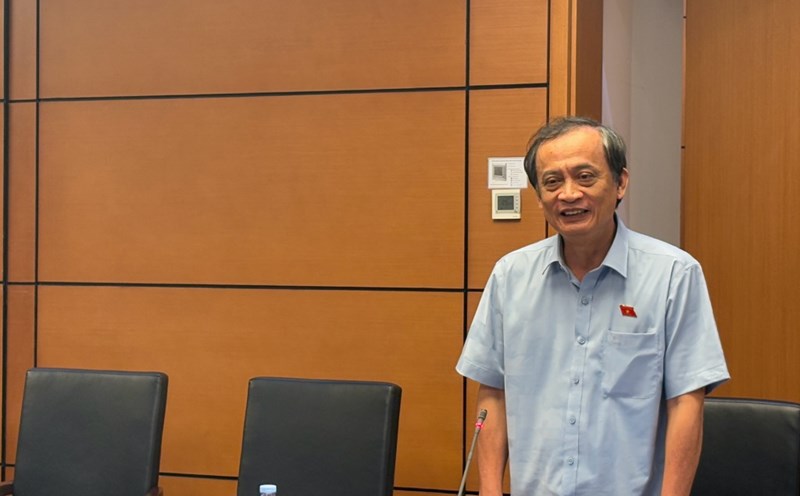On November 23, the National Assembly discussed in groups the draft Law on Management and Investment of State Capital in Enterprises.
Commenting on the content of profit distribution and use of the Fund in the draft law, delegate Pham Van Hoa (Dong Thap Delegation) said that the regulation of allocating a maximum of 50% of profit after tax to the Enterprise Development Investment Fund will be an important resource for the State to perform its investment function for economic development.
“However, the allocation level of this Fund should also be clear. Why only deduct 50%? Some people have suggested that it should be deducted 100%, or deducted 70-80%, the rest should be deducted from the State budget. The draft law stipulates that 50% should be deducted from the Enterprise Development Investment Fund, what the remaining 50% should be used for is not mentioned in the draft law,” the delegate informed.
The delegate said that the profit after fulfilling all obligations to be deducted for employees according to salary ratio or percentage is decided by the competent authority, not by the Chairman or General Director.
The delegate said that usually state-owned enterprises make a profit and report to the government that the average is calculated, but in reality, workers and laborers receive 3 million VND, and the chairman receives 100 million VND. The delegate said that leaders receive more, but not much more than employees.
Delegates agreed that the State should supplement the State budget to "save" loss-making enterprises, but it needs to be clear and explicit to avoid the mechanism of asking for help; and the responsibility of the person rescuing the enterprise must be clarified.
“This is the State's money, not your own. You spent it to save the business, but the business also "died". Who is responsible?”, the delegate asked.
Regarding the regulation that does not allow enterprises to do real estate business, except for state-owned enterprises that are allowed to do real estate business, other enterprises are not allowed (except in cases where the Government allows it), the delegate said that this is very necessary because there have been cases where enterprises did not do well in business, "seeing real estate is a good thing, they jumped in and did it and lost everything".
Regarding personnel work for state-owned enterprises, delegates proposed to add clear regulations to ensure publicity and transparency in the standards for appointed and re-appointed subjects; and to publicly disclose cases where unfortunate incidents occur to the extent that disciplinary action must be taken, or where re-appointment is not qualified.
Besides, it is necessary to be clear and distinct; subjective violations or minor violations should not be disciplined, because in production and business there are profits and losses.
In addition, in prohibited behavior, delegates said that it is necessary to divide into groups: Collective groups, organizations, and individuals that commit violations to clearly define responsibilities...











